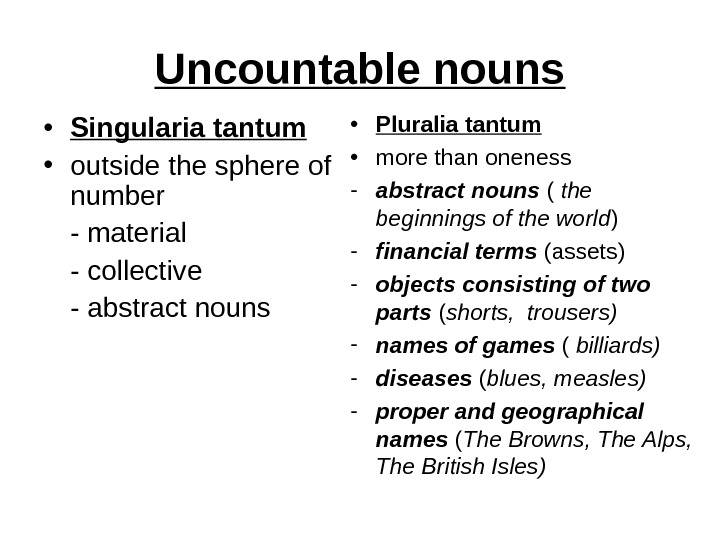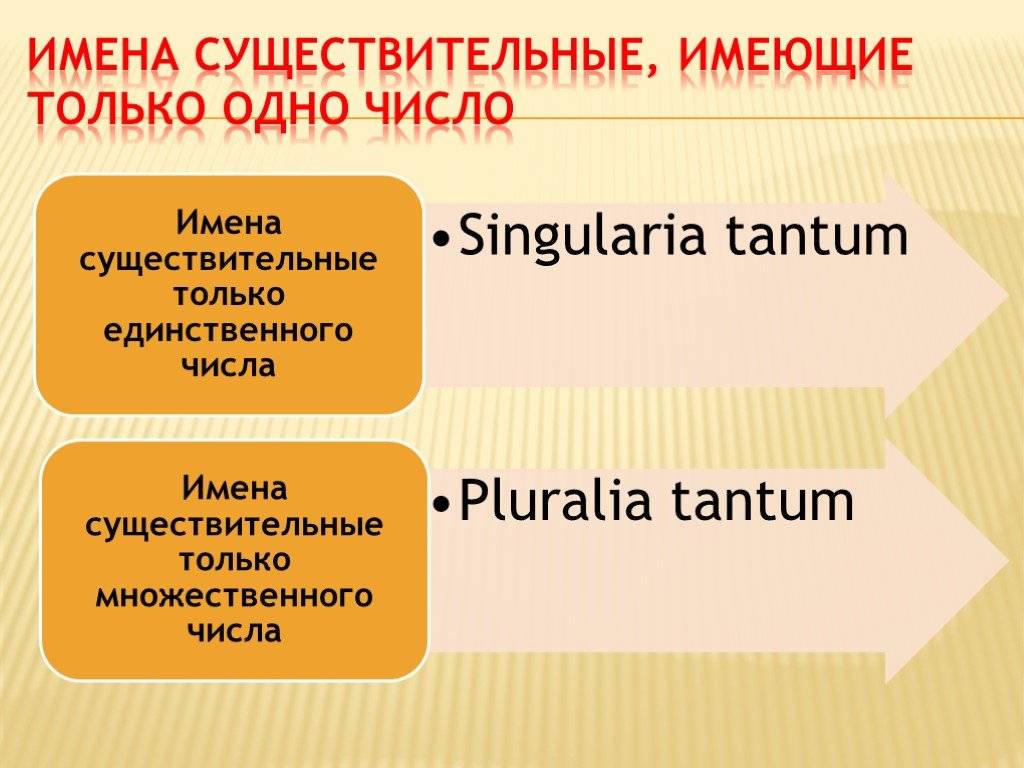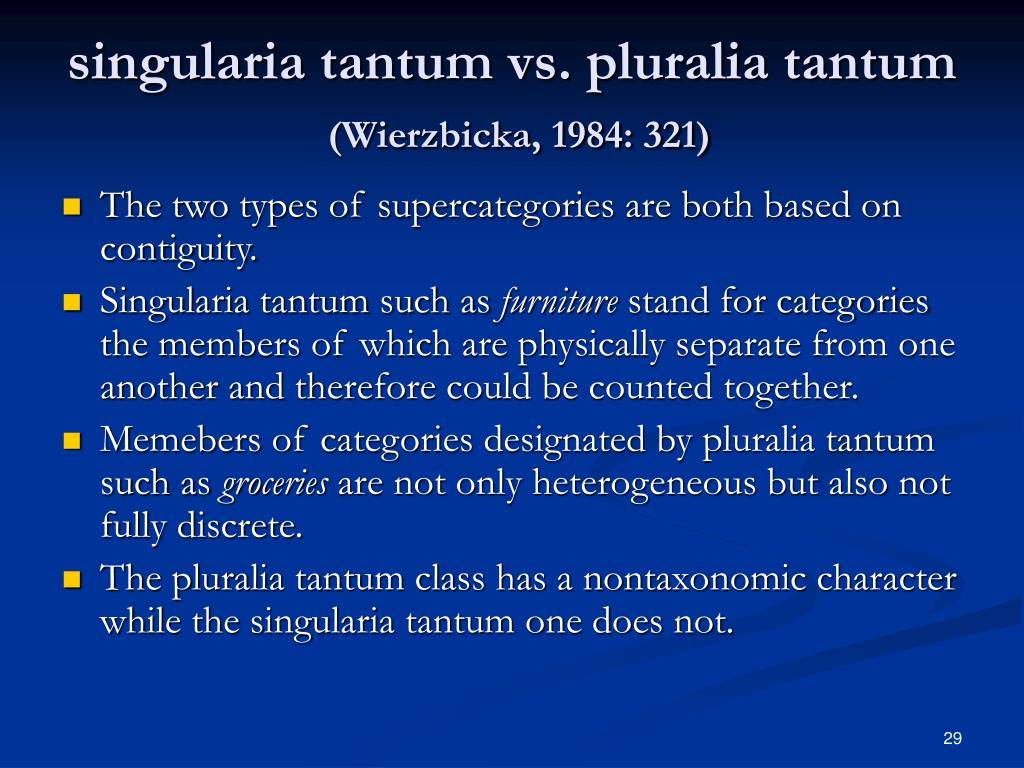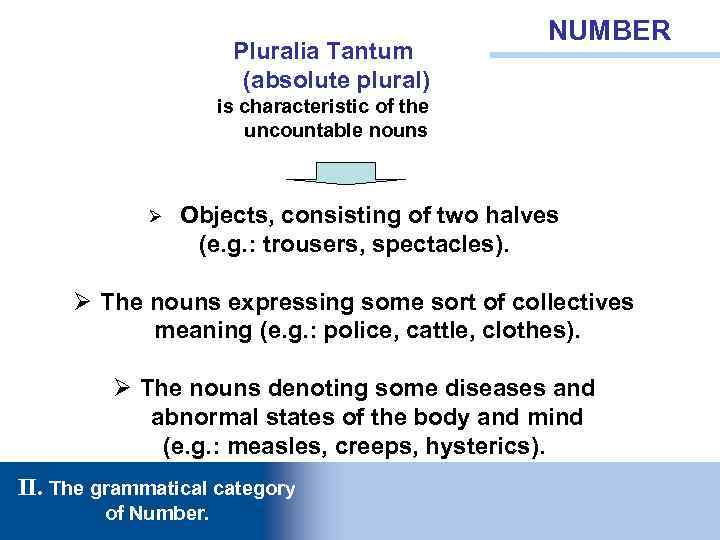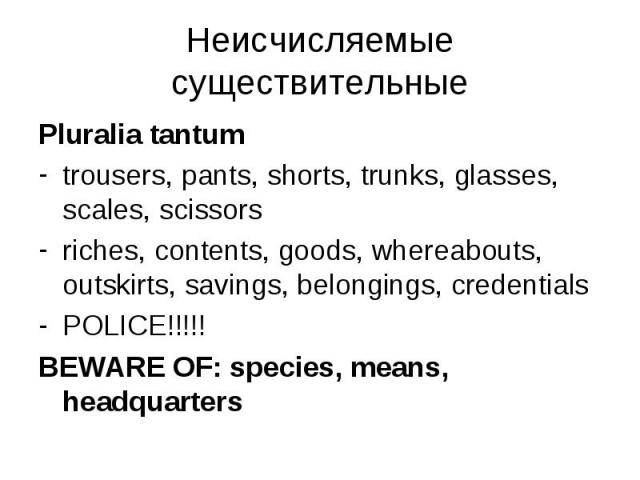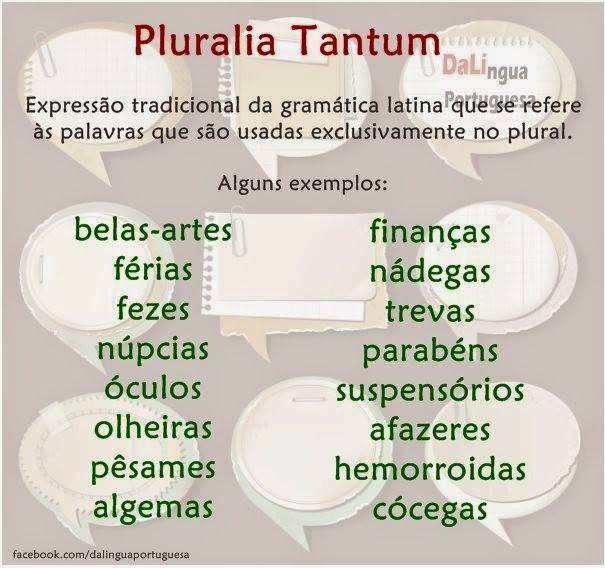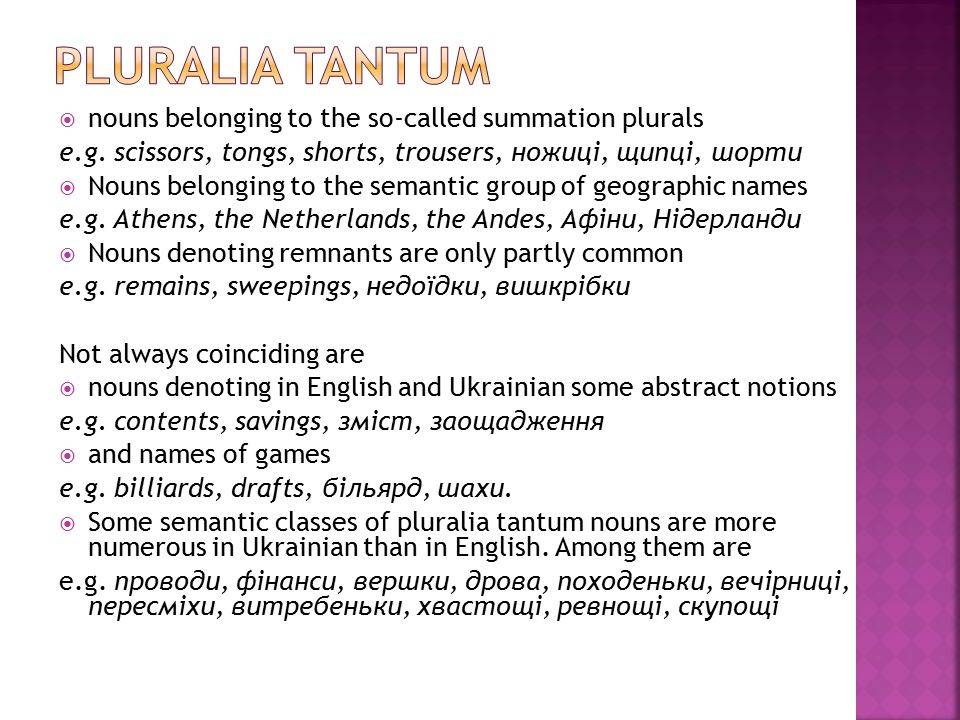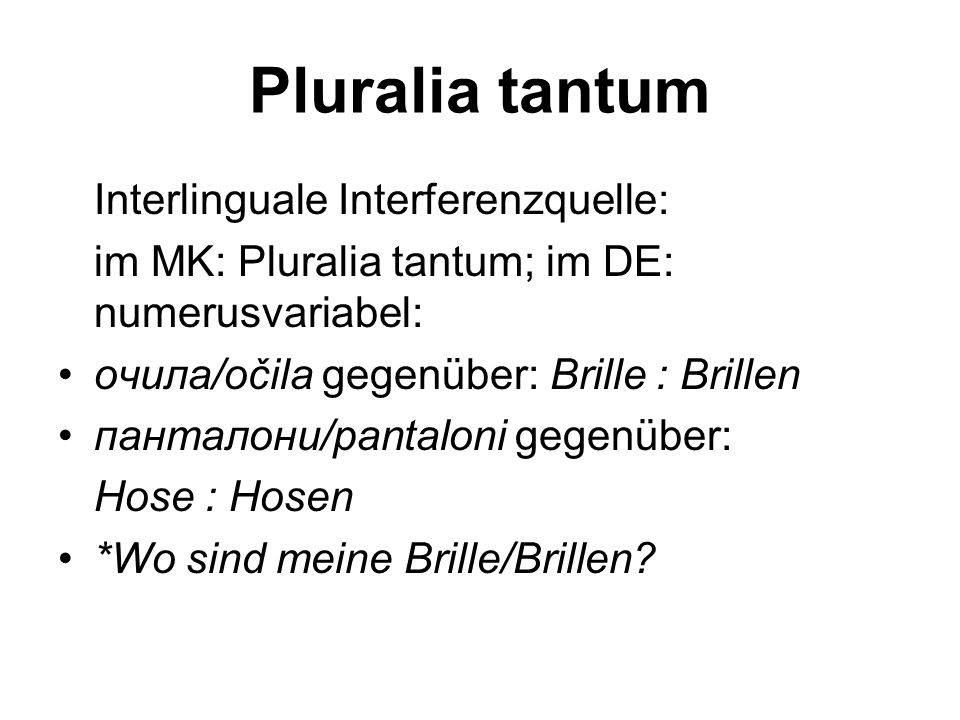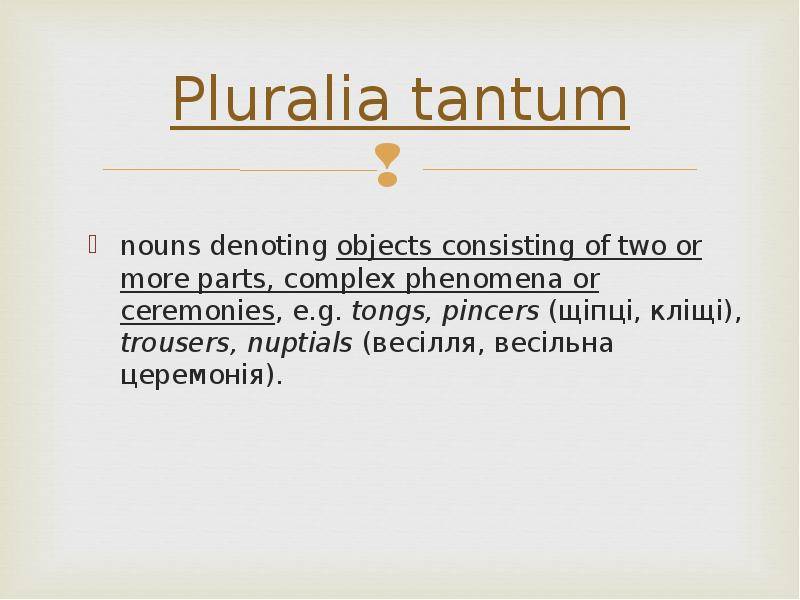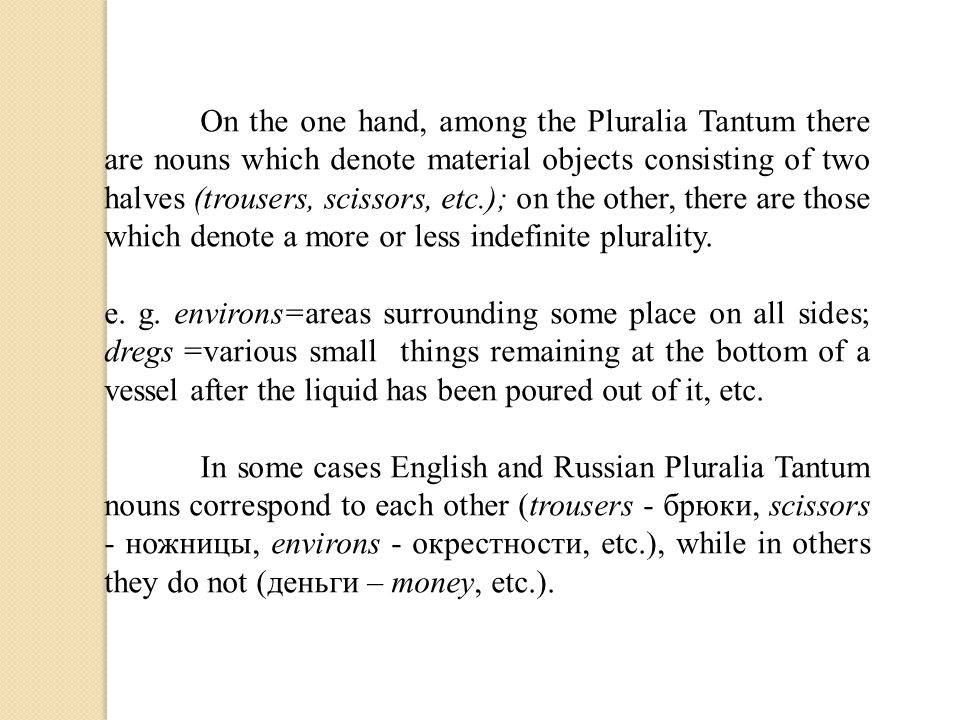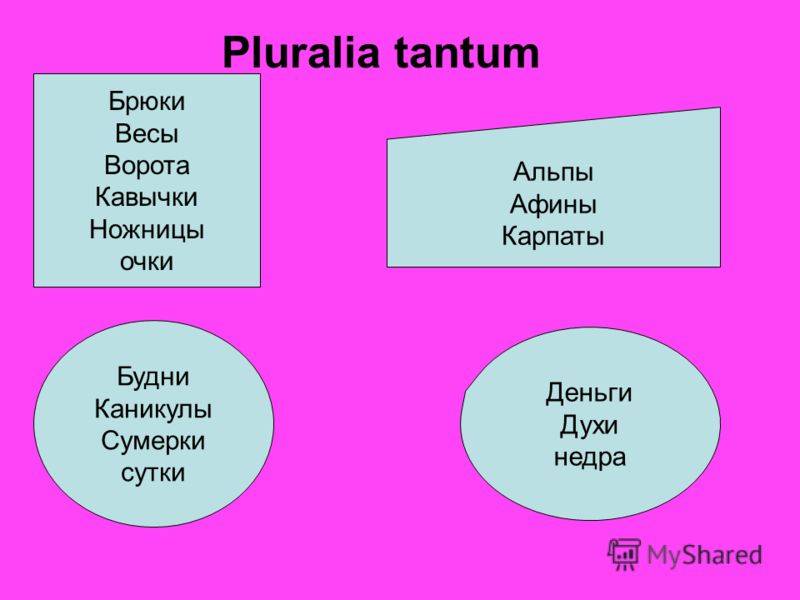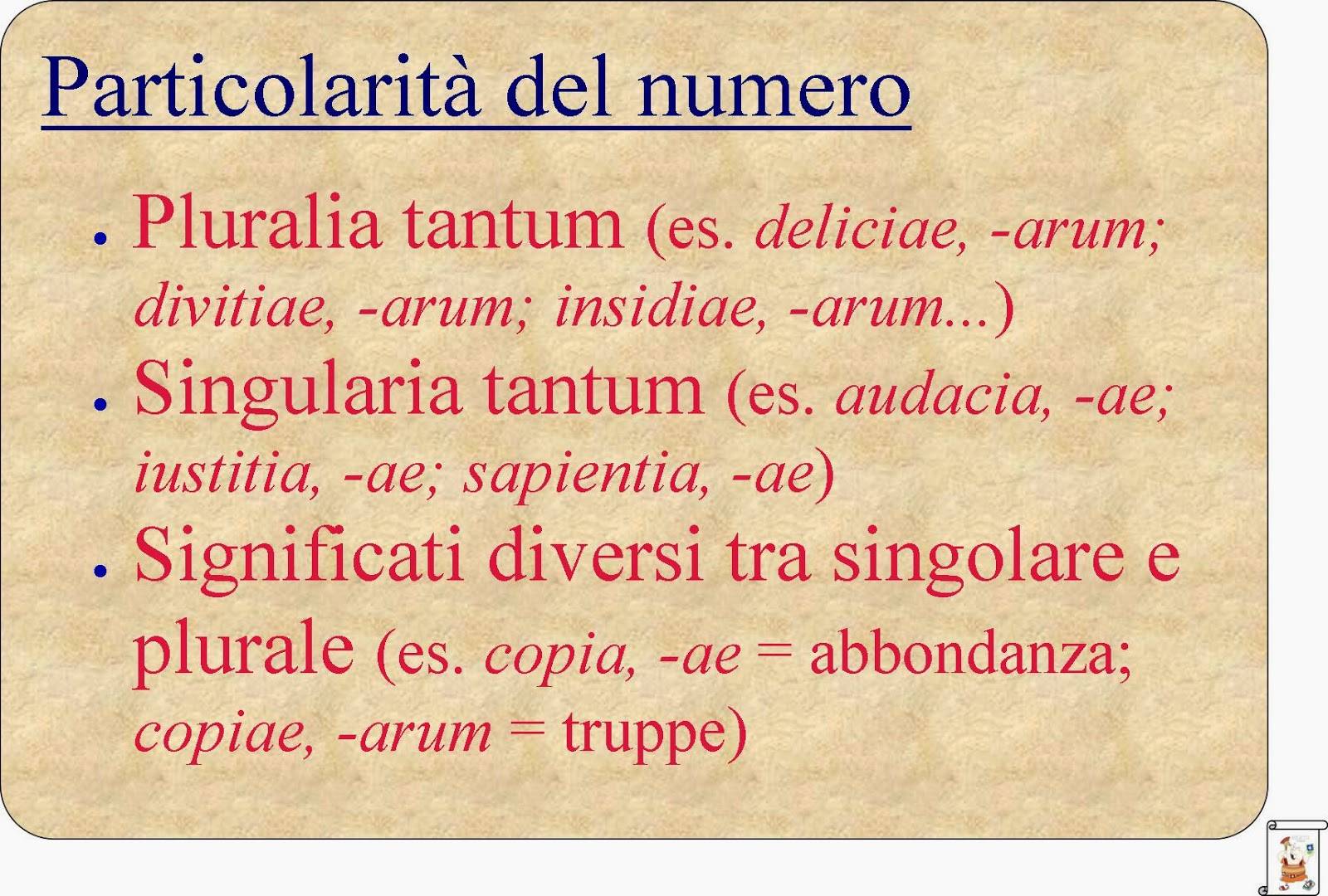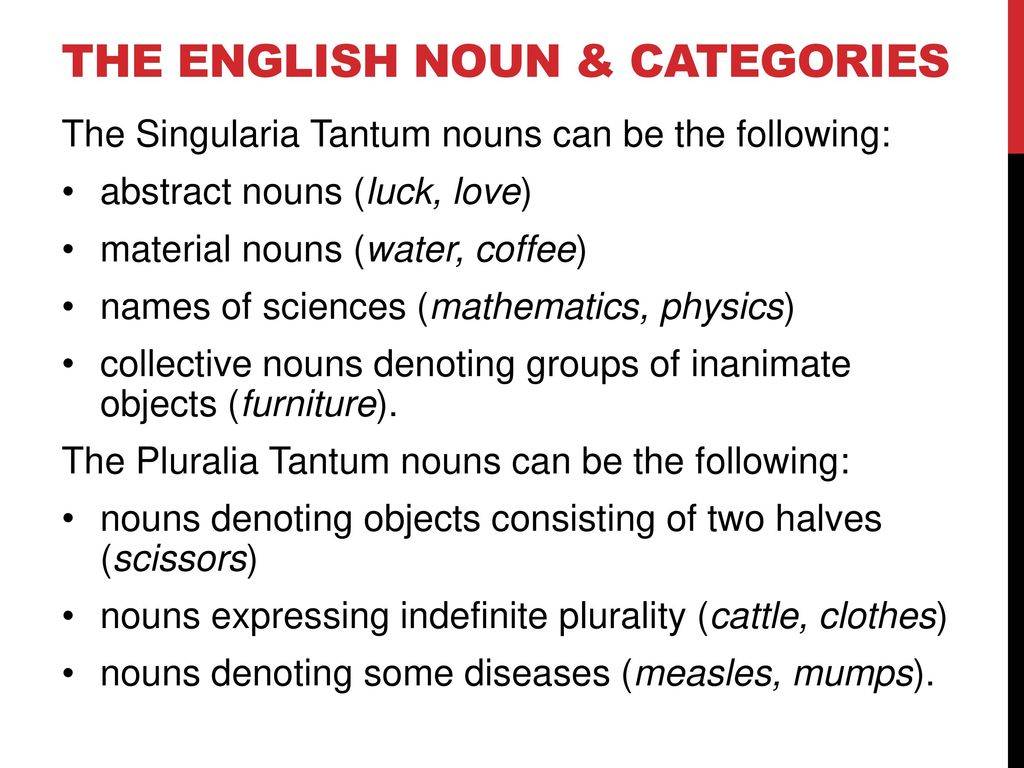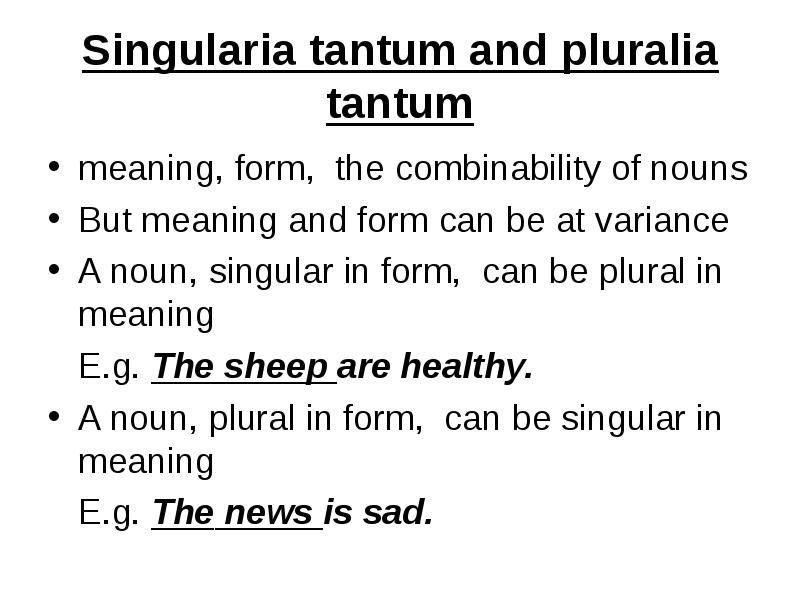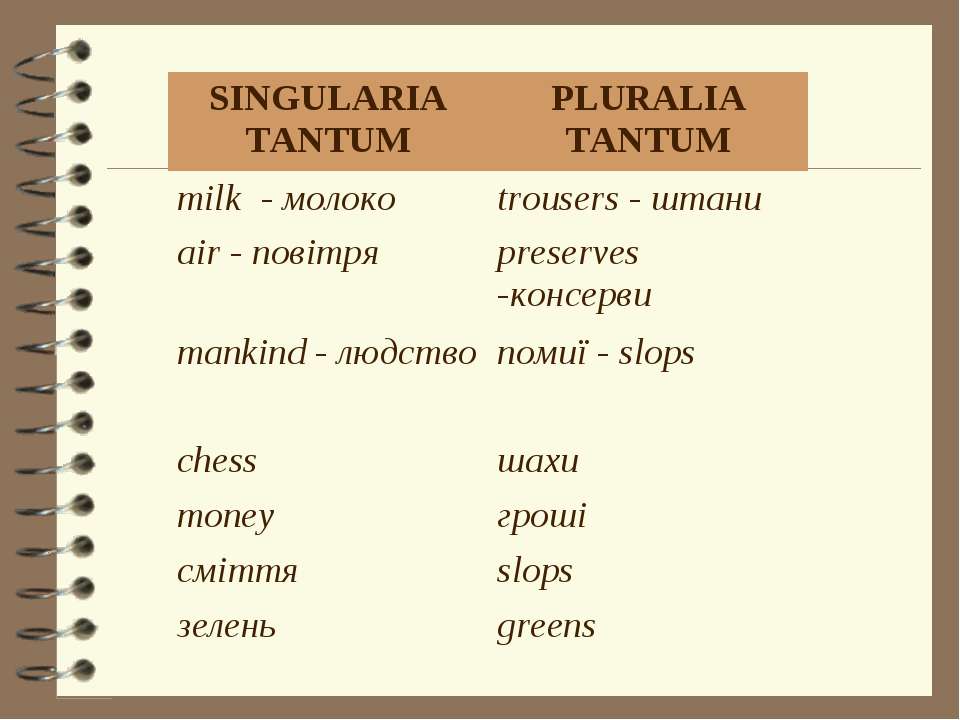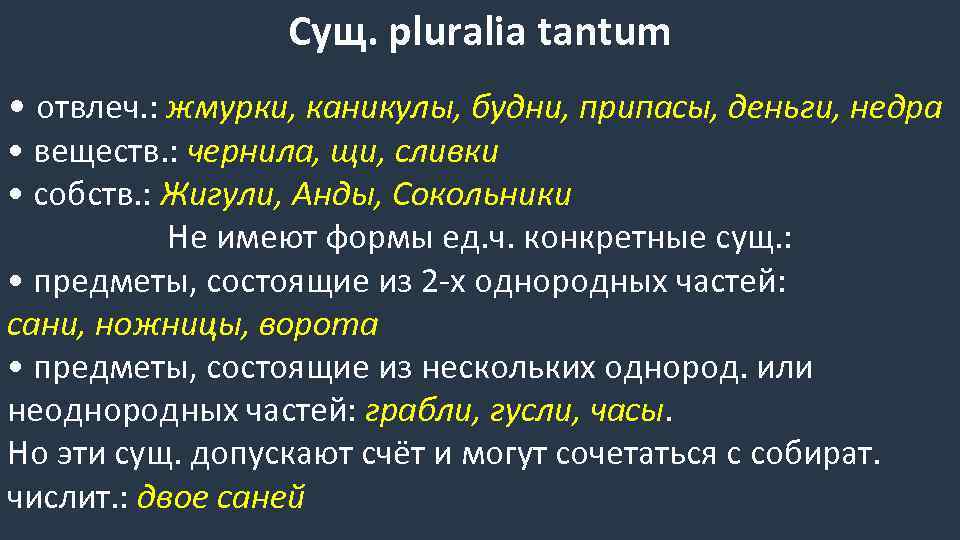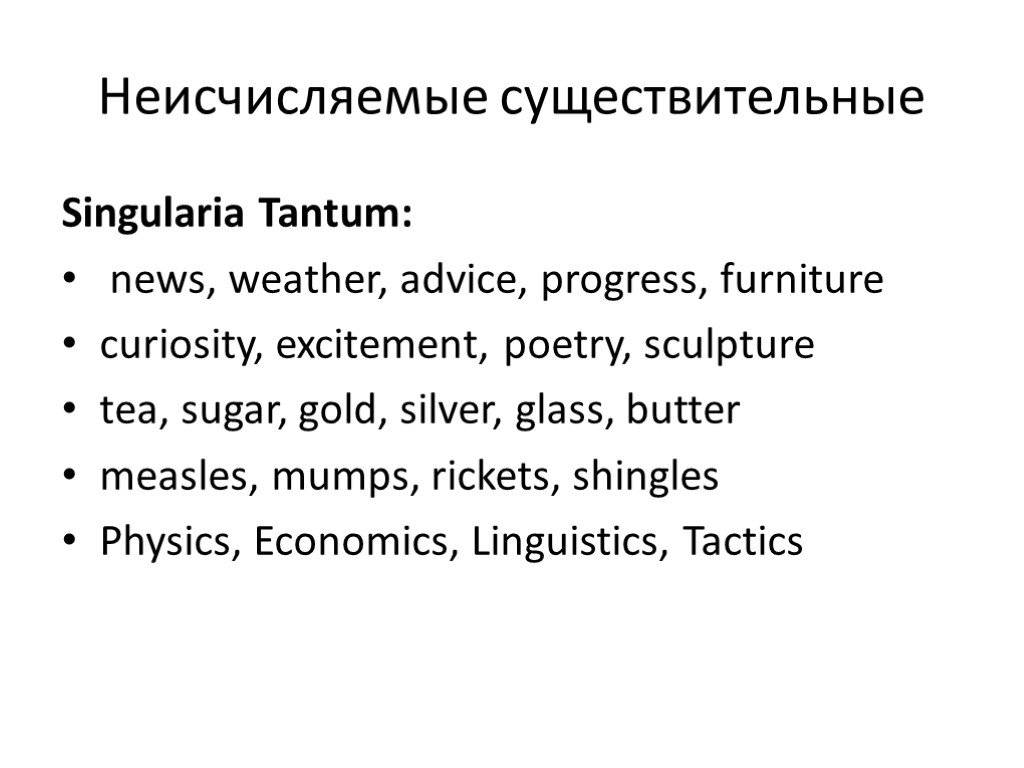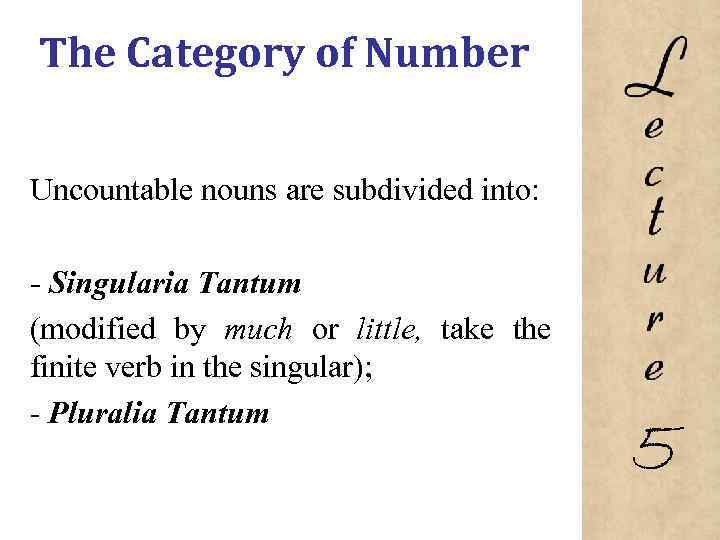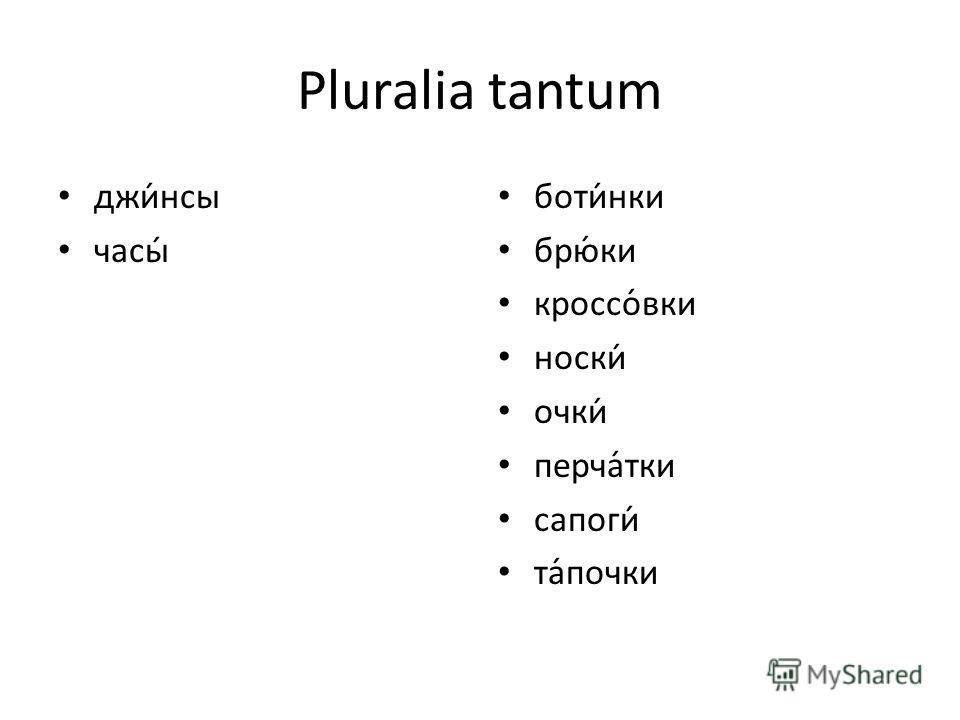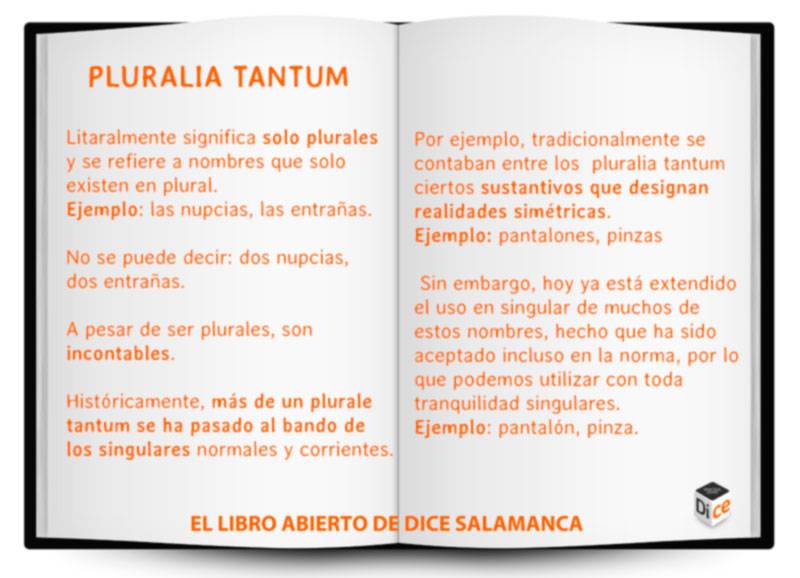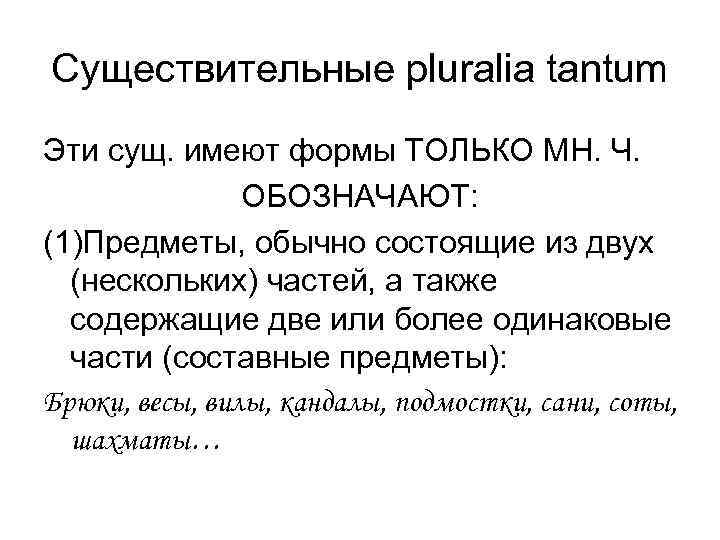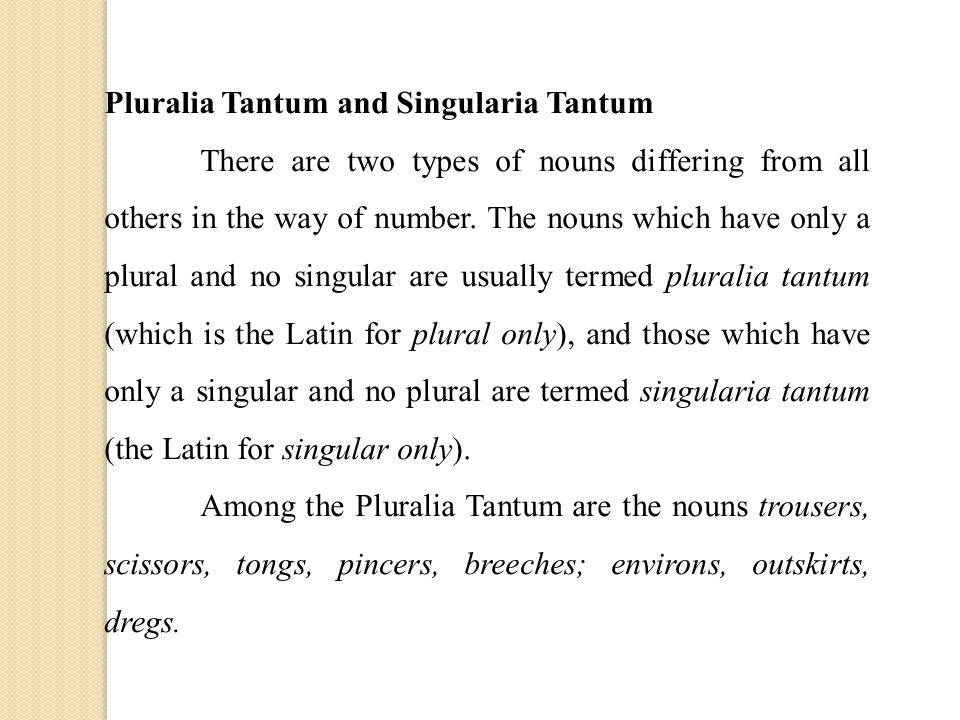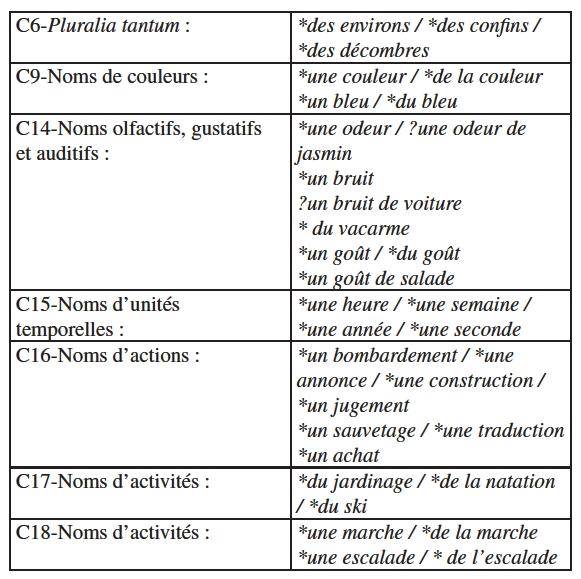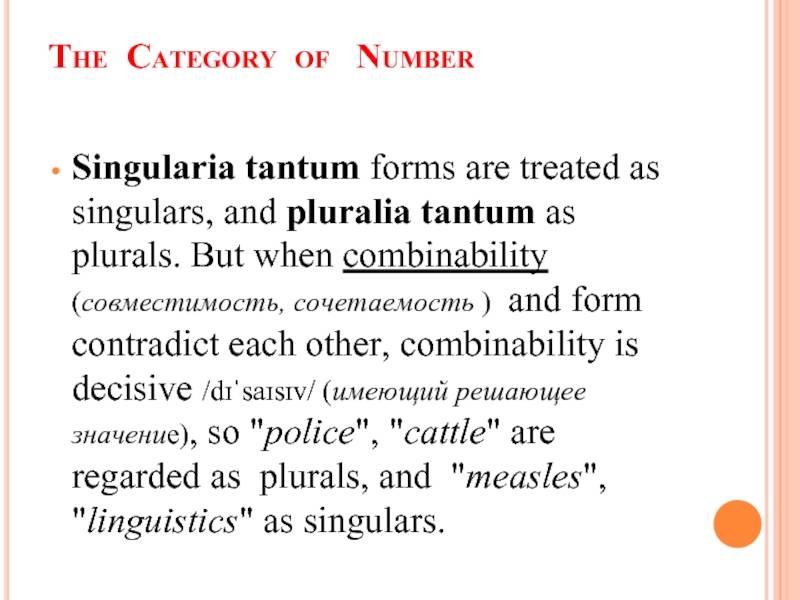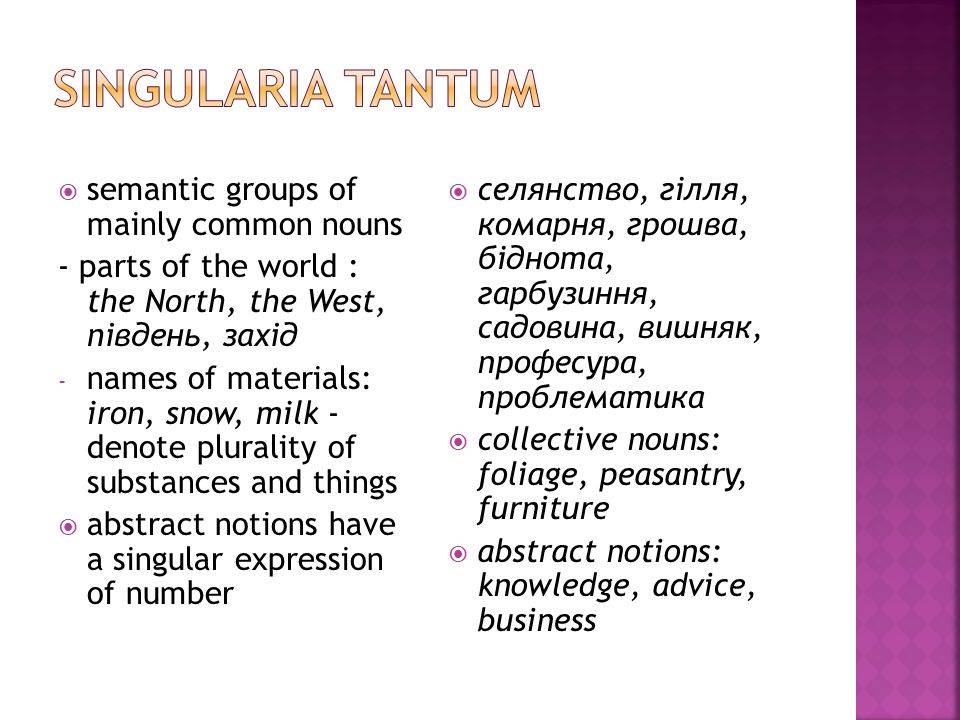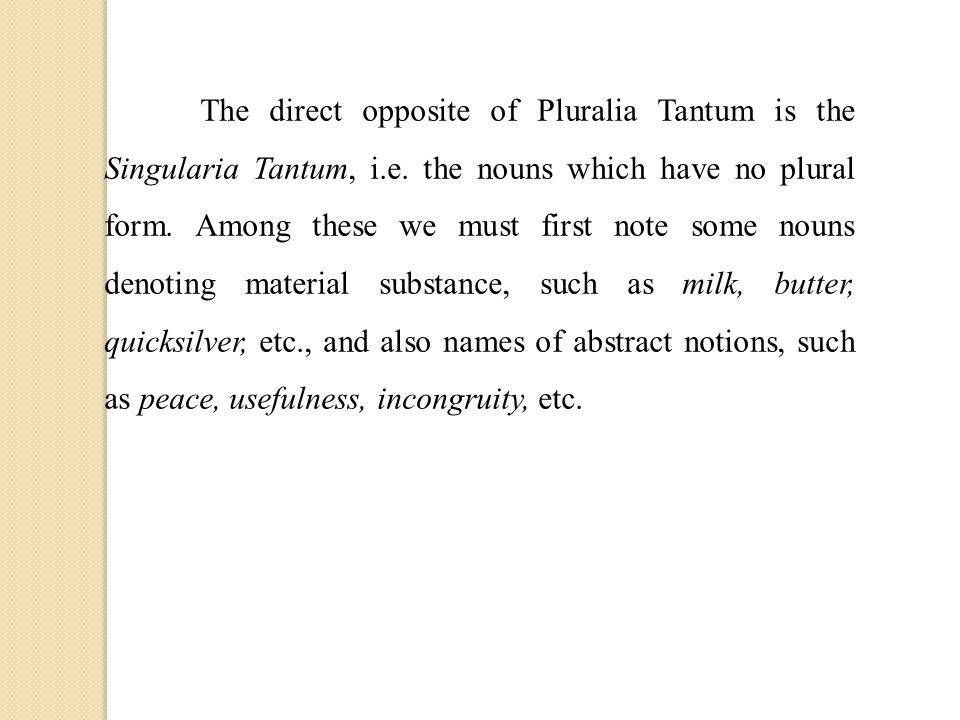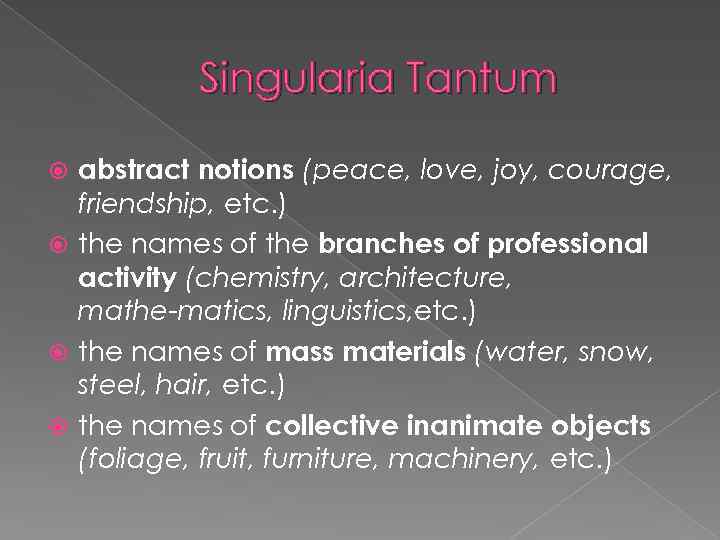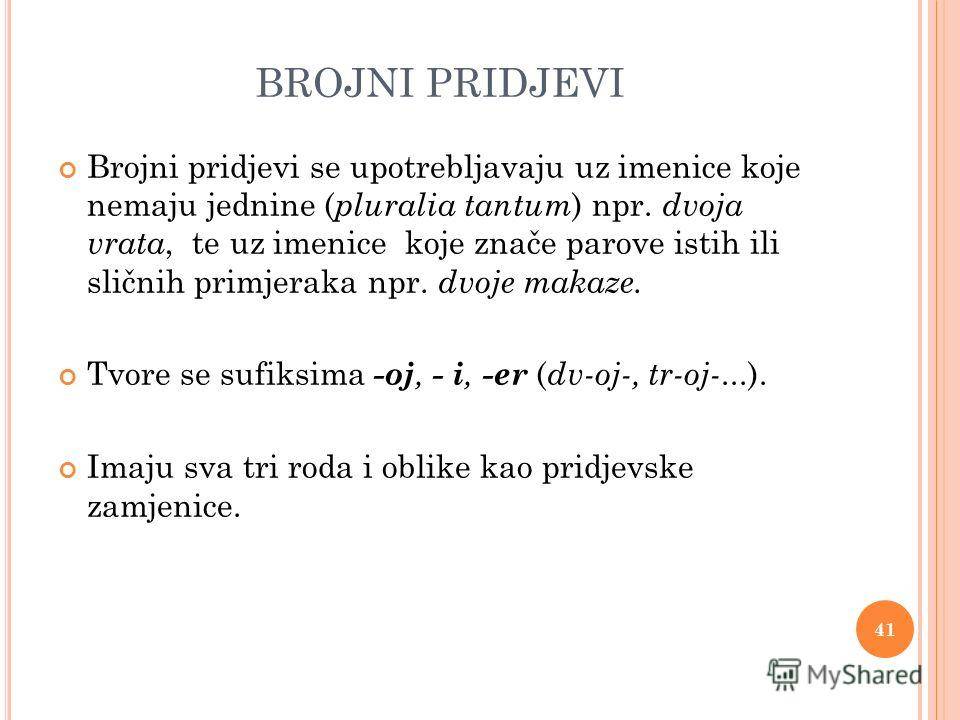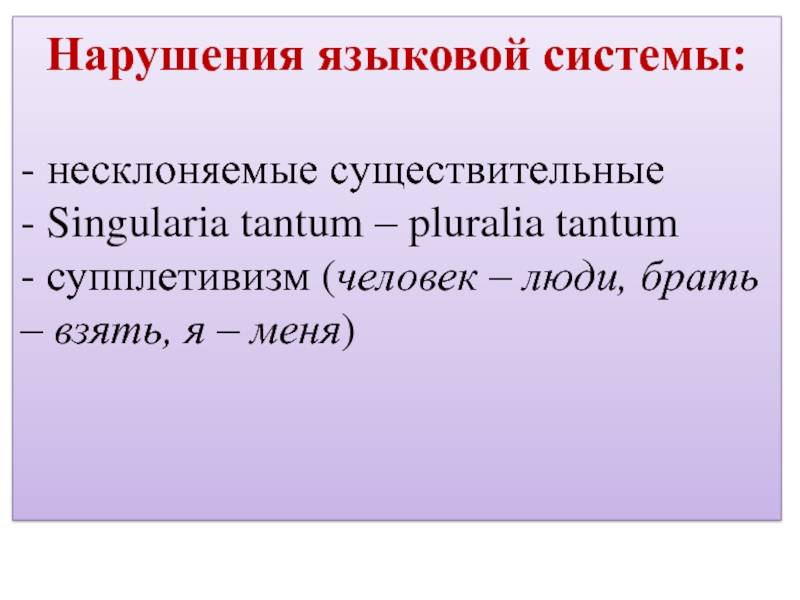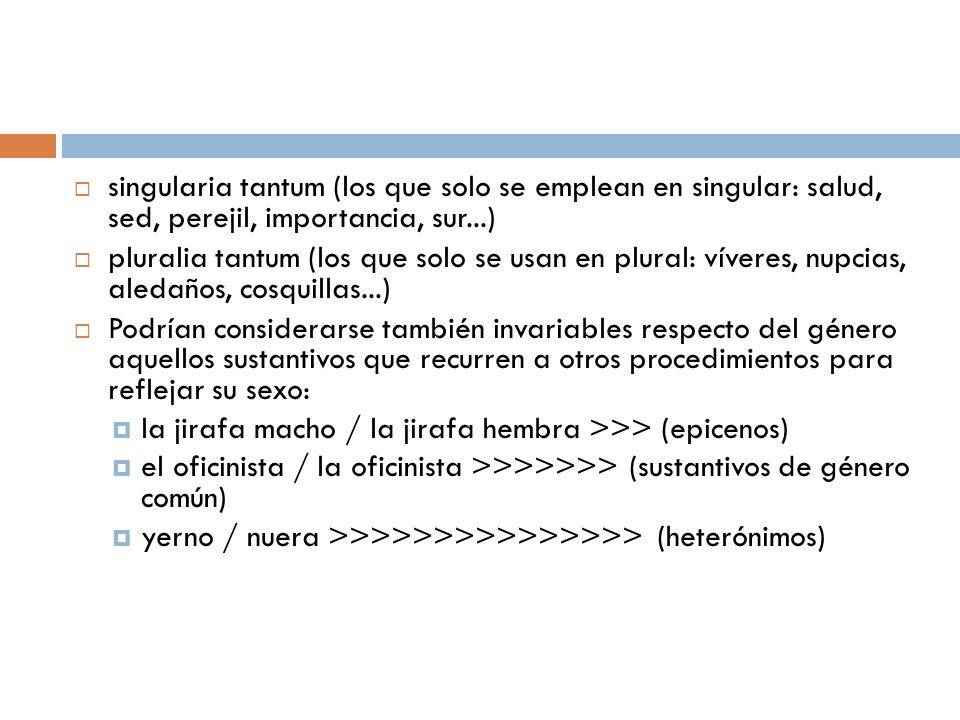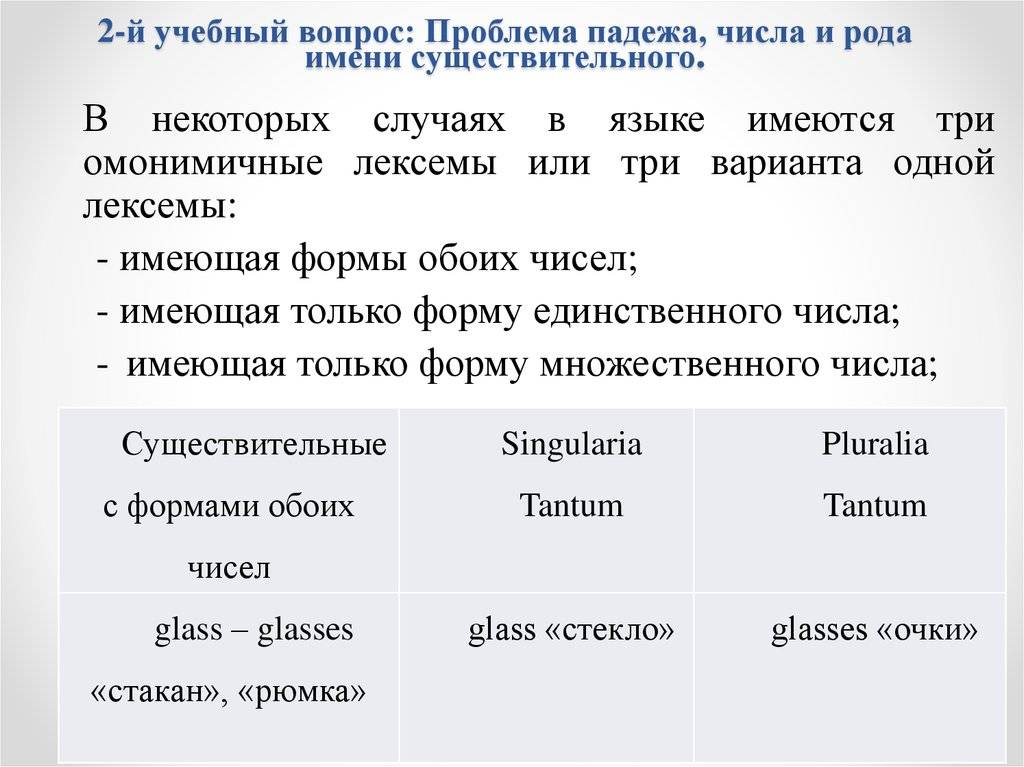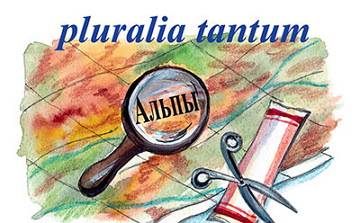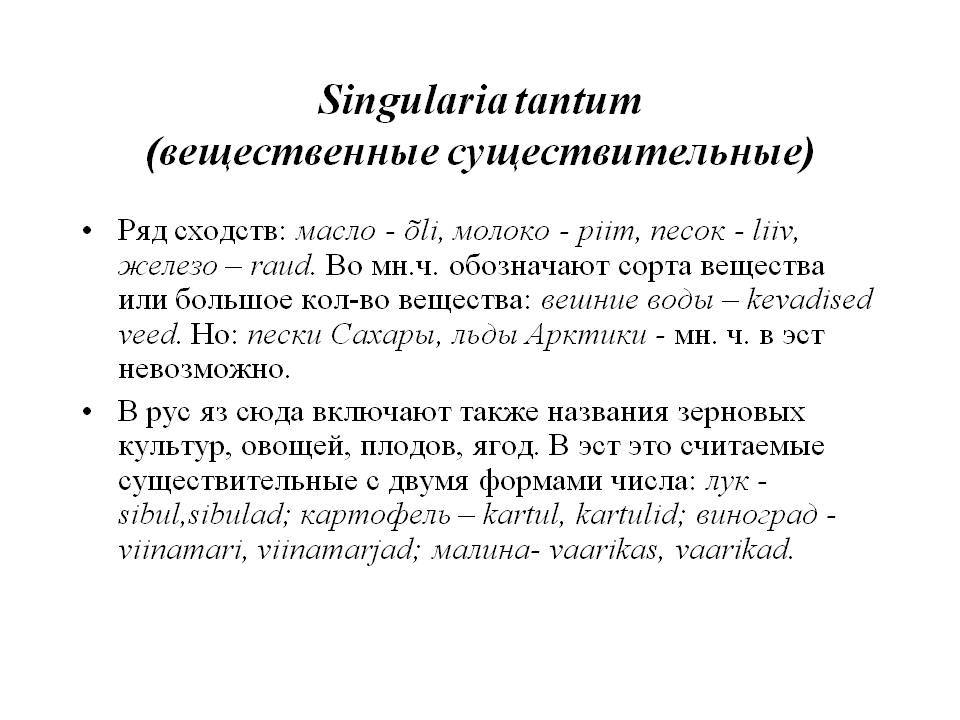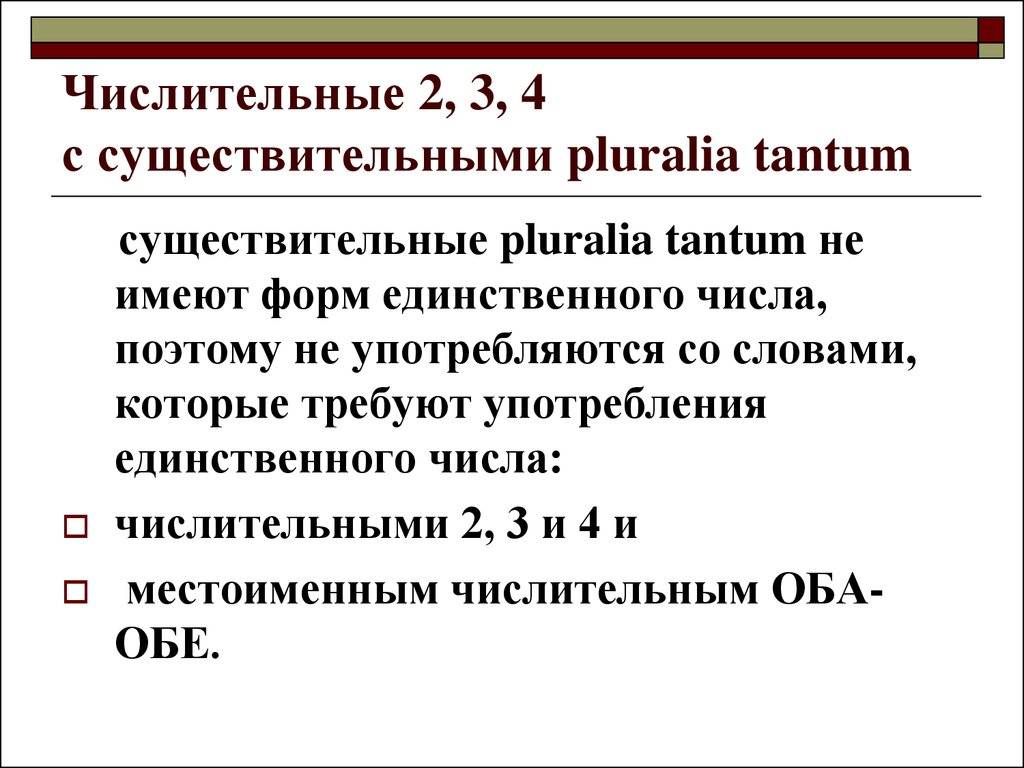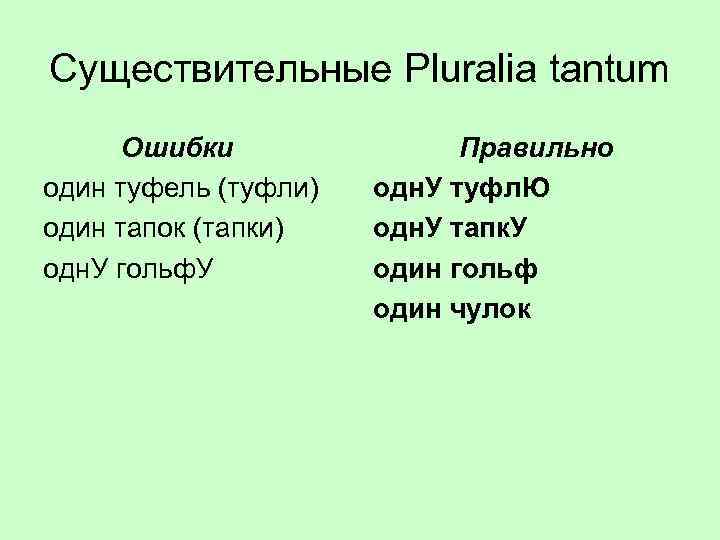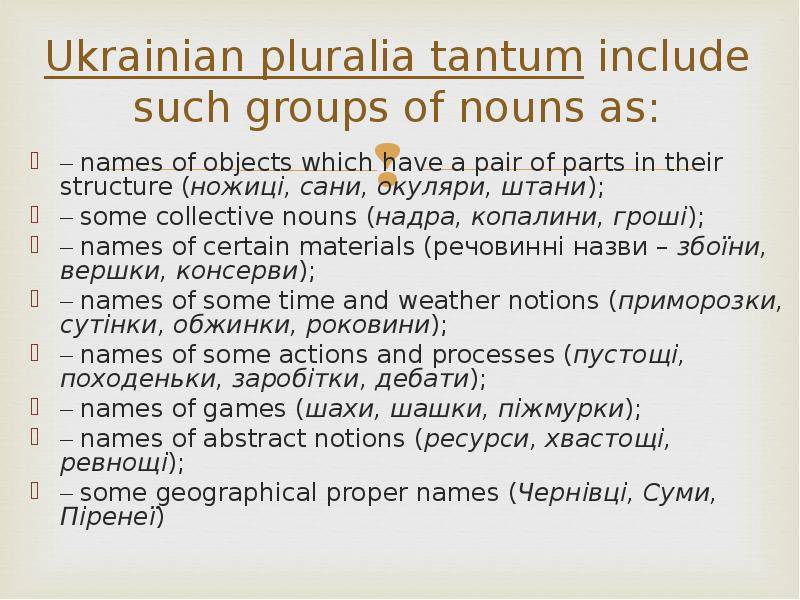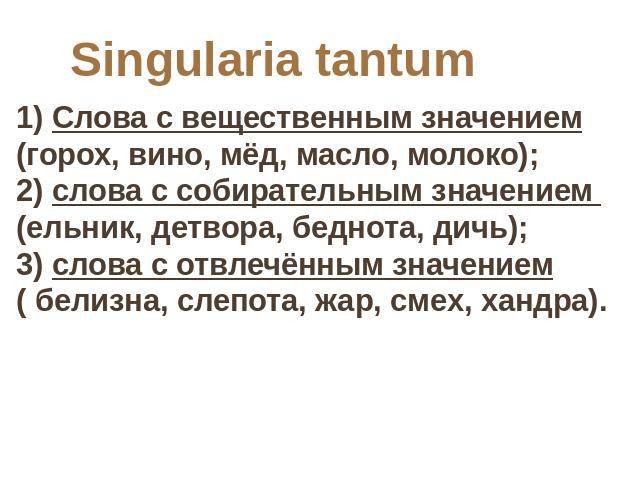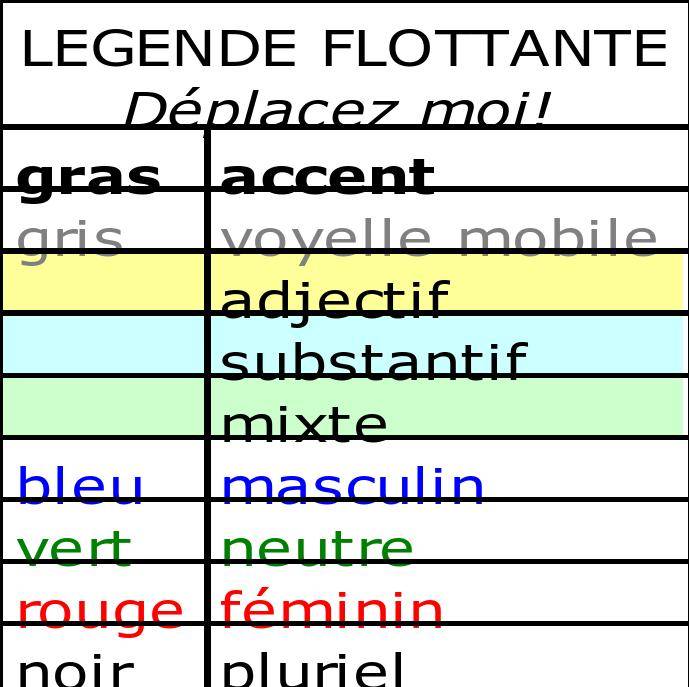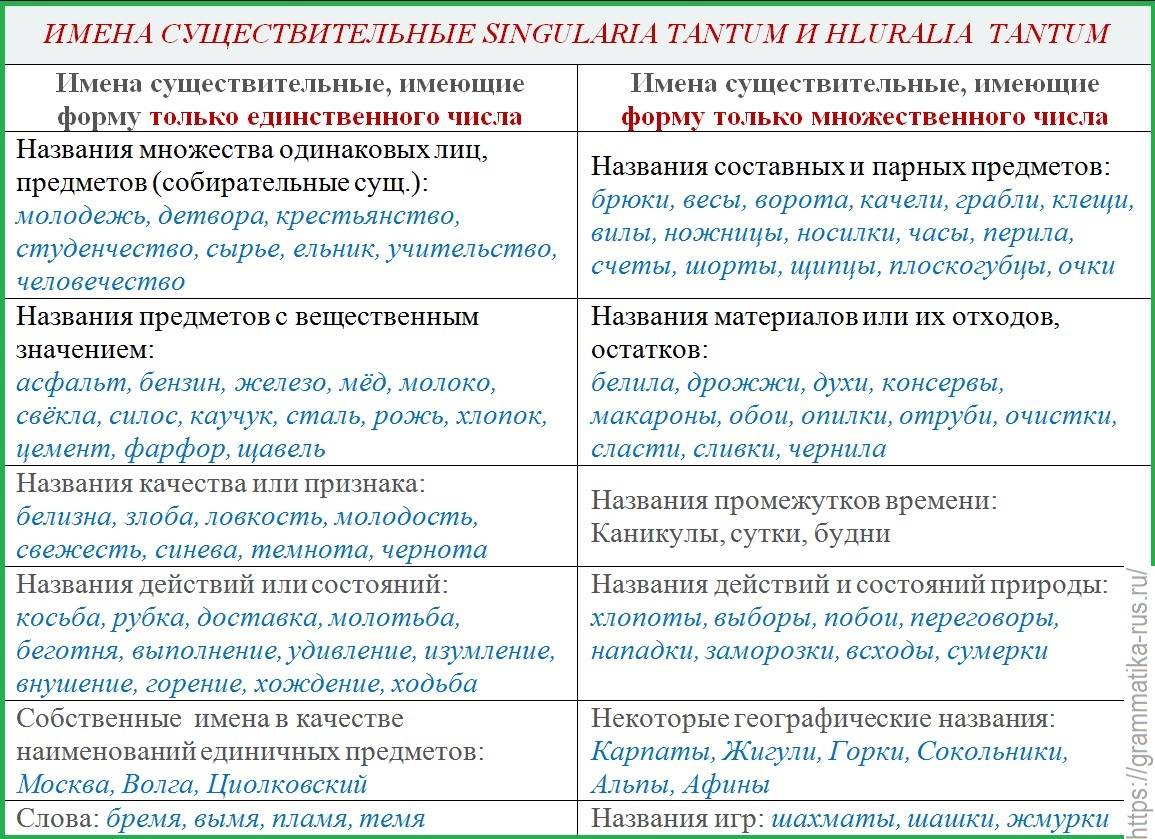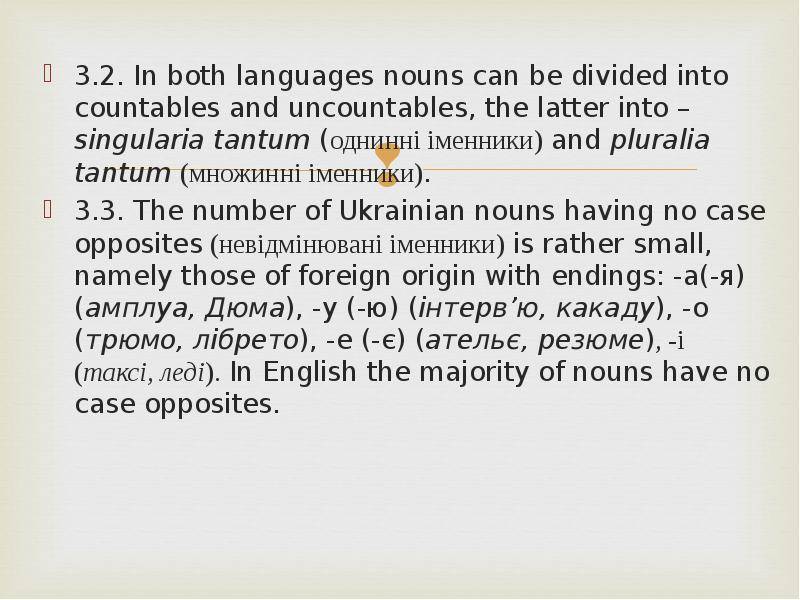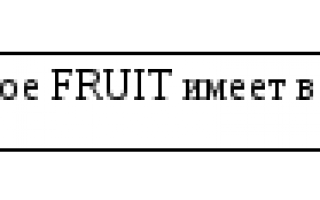Перевод «pluralia tantum» на русский язык: «Pluralia Только»
| tantum: |
только столько |
| pluralia |
источник Langcrowd.com |
|
illic ‘ tantum locum tantum |
здесь место только единственной
источник Langcrowd.com |
|
Tantum porro! Tantum victoria! |
Только вперёд! Только победа! источник Langcrowd.com |
|
illic ‘ tantum locum tantum |
есть только номер
источник Langcrowd.com |
|
Tantum magna spei certitudo nempe quod, praeter improsperos exitus, mea vita personalis et integra historia custodiuntur sub indelebili Amoris potestate et huius gratia, pro ipso sensum habent ac pondus; talis tantum spes animum adhuc addere potest ad operandum et prosequendum. |
Настройки модулей расширения главного окна программы
источник Corpus name: Vatican. License: not specified. References: http://www.vatican.va/ |
|
Tantum magna spei certitudo nempe quod, praeter improsperos exitus, mea vita personalis et integra historia custodiuntur sub indelebili Amoris potestate et huius gratia, pro ipso sensum habent ac pondus; talis tantum spes animum adhuc addere potest ad operandum et prosequendum. |
Только великая надежда с уверенностью в том, что, вопреки любым поражениям, моя личная жизнь и вся история оберегаются силою непреходящей Любви и благодаря ей приобретают смысл и значение, может придать мне мужества действовать и идти дальше. источник Corpus name: Vatican. License: not specified. References: http://www.vatican.va/ |
|
Tantum magna spei certitudo nempe quod, praeter improsperos exitus, mea vita personalis et integra historia custodiuntur sub indelebili Amoris potestate et huius gratia, pro ipso sensum habent ac pondus; talis tantum spes animum adhuc addere potest ad operandum et prosequendum. |
Мой старый дом уже продан
источник Corpus name: Vatican. License: not specified. References: http://www.vatican.va/ |
|
Tantum magna spei certitudo nempe quod, praeter improsperos exitus, mea vita personalis et integra historia custodiuntur sub indelebili Amoris potestate et huius gratia, pro ipso sensum habent ac pondus; talis tantum spes animum adhuc addere potest ad operandum et prosequendum. |
Пусть он умрет.Пусть они все умрут
источник Corpus name: Vatican. License: not specified. References: http://www.vatican.va/ |
|
Tantum magna spei certitudo nempe quod, praeter improsperos exitus, mea vita personalis et integra historia custodiuntur sub indelebili Amoris potestate et huius gratia, pro ipso sensum habent ac pondus; talis tantum spes animum adhuc addere potest ad operandum et prosequendum. |
Посмотри, что вы заставили меня сделать! источник Corpus name: Vatican. License: not specified. References: http://www.vatican.va/ |
| Tantum |
источник Langcrowd.com |
| tantum |
источник Langcrowd.com |
| tantum |
источник Langcrowd.com |
| tantum |
источник Langcrowd.com |
|
Tantum. |
источник Langcrowd.com |
| tantum |
источник Langcrowd.com |
| tantum |
источник Langcrowd.com |
| Tantum |
источник Langcrowd.com |
| Tantum |
источник Langcrowd.com |
| Tantum |
источник Langcrowd.com |
| tantum |
источник Langcrowd.com |
Перевод «pluralia tantum» на Английский, Немецкий, Итальянский, Французский, Испанский, Португальский
I hate English[edit]
- I agree that some of the words are questionable and the list needs to be looked at, but keep in mind some words are homonyms, i.e. jaws can be either a top jaw and bottom jaw or «the jaws of life,» in this case being similar to scissors. The words do need to be looked at a lot closer though.
- I’m not sure if the United States should be on the list because the name is derived from the states that united against the British. In terms of etemology, united is an adjective and states is a plural noun. In colloquial terms, however, you do have a point that it is often used as a pluralia tantum. Then again, «gonna» is colloquially used as a verb, but it is not one grammatically. My personal view of wikipedia is that if there’s doubt, don’t put it up because people like to assume what’s on here is verified 100% true. —This unsigned comment was added by 71.213.224.137 (talk • contribs) 2006-07-10 08:45:29.
Singulare tantum
The term for a noun which appears only in the singular form is singulare tantum (plural: singularia tantum), such as the English words information, dust, and wealth. Singulare tantum is defined by the Shorter Oxford English Dictionary as «Gram. A word having only a singular form; esp. a non-count noun.» Such nouns may refer to a unique singular object (essentially a proper noun), but more often than not, they refer to uncountable nouns, either mass nouns (referring to a substance which cannot be counted as distinct objects, such as milk) or collective nouns (referring to objects which may in principle be counted but are referred to as one, such as popcorn or Arabic تُوت tut ‘mulberry’). Given that they do not have a number distinction, they may appear as singulare tantum in one language but as plurale tantum in another. Compare English water to the Hebrew plurale tantum, מַיִם (mayim).
In English, such words are almost always mass nouns. Some uncountable nouns can be alternatively used as count nouns when meaning «a type of», and the plural means «more than one type of». For example, strength is uncountable in Strength is power, but it can be used as a countable noun to mean an instance of [a kind of] strength, as in My strengths are in physics and chemistry. Some words, especially proper nouns such as the name of an individual, are nearly always in the singular form because there is only one example of what that noun means.
Examples and Observations
«Richard Lederer asks, ‘Doesn’t it seem just a little loopy that we can make amends but never just one amend; that no matter how carefully we comb through the annals of history, we can never discover just one annal; that we can never pull a shenanigan, be in a doldrum, or get a jitter, a willy, a delerium tremen, a jimjam, or a heebie-jeebie?’ Lederer is alluding to pluralia tantum: Nouns that are always plural. Because they are not the result of pluralizing a singular, the complete plural form, -s and all, has to be stored in memory. Pluralia tantum in a sense are irregular regulars, and indeed they are happy to appear inside compounds: almsgiver (not almgiver), arms race (not arm race), blues rocker (not blue rocker), clothesbrush, Humanities department, jeans maker, newsmaker, oddsmaker, painstaking.»(Steven Pinker, Words and Rules. Basic Books, 1999)
SCISSORS — ножницы
Scissors
Scissors всегда во мн.ч., поэтому в предложении глагол должен согласовываться c существительным также во мн.ч. Мы говорим, “the scissors areon the table,” но не»the scissors is on the table». Чтобы обозначить, что ножницы все-таки одни, то говорим следующим образом: “give me a pair of scissors” (пара ножниц) но не “give me a scissor.” По факту, в этом есть смысл, поскольку ножницы состоят из двух лезвий, которые используются в одном предмете, мы концептуализируем их во мн.ч., также, как и некоторые другие инструменты pluralia tantum: pliers (плоскогубцы), tongs (щипцы), tweezers (щипчики). Однако не все предметы состоящие из двух функциональных частей имеют форму мн.ч. в английском A clamp (зажим), a bear trap (капкан), и a flat iron (утюжок для волос).
Пожалуйста, помогите c переводом:
a) scriptoris vestrae
b) scriptorem illum
c) scriptorĭbus quibus
d) scriptores horum
e) scriptor noster
Латынь-Русский
Usufructus est ius alienis rebus utendi fruendi salva rerum substantia. Fructuarius causam proprietatis deteriorem facere non debet. Qui fundi usumfructum habet, neque arbores frugiferas excidere, neque villam diruere, neque quicquam facere in perniciem proprietatis debet. Ususfructus fundi, animalis, servi, aedium et ceterarum rerum constitui potest. Si in fundo ususfructus praestatur, quidquid
Латынь-Русский
De iure et lege
Латынь-Русский
rfucts
Латынь-Русский
Собирательные фразы
Некоторые нарицательные обозначают предметные наборы и одушевлённые группы.
an article of (clothing) – часть гардероба, предмет одежды, вещь
an assembly of (senators/churchmen) – собрание сенаторов/священнослужителей
a batch of (letters, samples, students) – пачка писем, партия образцов, группа студентов
a bevy of (experts, beautiful girls) – группа экспертов, компания красивых девушек
a board of (directors) – совет директоров
a bunch of (grapes/bananas, keys, flowers, people/friends) – гроздь, связка, букет, группа
a bundle of (banknotes, nerves, laundry) – пачка банкнот, клубок нервов, бельё для стирки
a clump of (bushes/flowers) – заросли кустарника/цветов
a drove of (tourists/sightseers, citizens) – масса туристов/экскурсантов, группа граждан
a flock of (birds/sheep) – стая птиц, стадо овец
a heap/pile of (books) – куча/пачка книг
a heard of (cows) – стадо коров
a litter of (kittens/puppies) – помёт котят, щенков
a pack of (cards, lies, wolves) – колода карт, сплошная ложь, стадо волков
a range of (mountains, products, subjects, possibilities) – цепь, номенклатура, набор
a set of (teacups) – набор чашек
a shoal of (fish, people) – косяк рыб, толпа людей
a swarm of (bees/insects) – рой пчёл/насекомых
a turf of (grass, hair) – пучок травы, прядь волос
The adjective in the contrasted languages, degrees of comparison, possessive adjectives.
Adj.
expresses the quality of things or substances and can serve as a
predicative after the copula-verb (was
small, сталанервовою).
Isomorphic
classes:
qualitative (cold,
big, high,малий
червоний),
relative – express qualities of the obj.and phenomena through their
relations to other obj.or phen.(golden, English,осінній,
святковий),
possessive and relative (присвійно-відносні:
Byronian, Shakesperian,Дніпровський,
Шевченківський):
-ic, -ian; -евк,
-івськ,
-цьк,
-зьк,
-ин/-ін,
-ач/-яч
Allomorphic
class:
possessive/присвійні
(мамин/материн,
братів/братова,
лисиччина
(хатка)):
-ів/їв,
-ин/ін,
-ов-а,
-ов-е,
-ев-а,
-ач/-яч
Structure
of adj.:
1)base=regular
root words (old, small, clean; винен,
годен,
рад,
жив)
2)derivatives:
in English mostly regular stems +suff: -al/-ial, -able/-ible,
-ary/-ory, -ern, -ful, etc (boyish, urban, English,annual,
western,divergent); in Ukr.most are non-stem adj., are formed with
suff.(-н-,
-езн-,
-ськ/-зьк/-цьк,
-ан/-ян,
-ов/ев,
etc) 3)compound=sometimes
have structural or lexical singularities in the contr.l-s
(e.g.breast-high=занурений
до
грудей;
upright=чесний,
вертикальний
but
four-storied=чотириповерховий,
all-national=загальнонародний)
Isomorphic
features:
suppletive forms in degrees of comparison; the existence of
derivative prefixal and suffixal adj. (in Ukr.very productive
prepositional.pref:без
думки=бездумний,
that correspond to Eng.adverbial postpositions:to grow over=to
overgrow); adjectivisation of some parts of speech (e.g.prince
charming, to-do people); whole and partial (no gender, number, case
distinctions) substantivisation (a native, прийомна;the
rich, бути
в
літньому)
Allomorphic
f.:
in Ukr. formation of adj.with the help of diminutive and augmentative
suff. (гарненький,
малесенький,
чистісінький;
величезний,
здоровенний,
добрячий,багатючий);
in both l-s compound adj.consisting of the initial
adjectival,substantival, numerical, pronominal, or adverbial
component (Ukr.have gender, case, number=чорногрива,
Eng.-ing,-ed,-ty,or no marker= easy-going, silk-like)
Grading:
positive,
comparative, superlative. Analytic (more/less;the most/the least;
більш/менш,
найбільш/найменш
+intensifying adv.:набагато,значно,куди)
and synth (adj+-er,-est; -іш-/-ш-,
най-,
щонай-).
In Eng. synth.is restricted to base adj. + those ending in -able,
-er, -ow. In colloquial speech analytical w.can be used to all adj.
Allom:
in Ukr. comper.and superl.degrees-transformations: к/щк/ек=ш
(глибший);
г=жч
(дорожчий);
/с/
перед
/т/=щ
(вищий,товщий)
In
both l-s no grading is used with:
1)adj.denoting a constant feature (blind, deaf,nude)
2)adj.expr.similarity of colour (lilac,lemon,ruby) 3)colour of hair
or eyes (dun,bay) 4)intensity trough suff.or pref. (bluish,
reddish,синявий,жовтуватий)
+
suppletive forms in both l-s. (гарний-кращий;good-better-the
best)
Видео с латинскими и русскими субтитрами
Singularia Tantum (лат. «единственное только»)
Некоторые нарицательные могут быть только единственными:
business, furniture, information, progress, strength, revenue, merchandise, property
Business, property, furniture, information могут выступать в исчисляемых значениях.
Business исчисляем в значении коммерческого предприятия.
Property исчисляем в значении качества, характеристики, свойства.
Furniture исчисляем с определителем an article/piece of.
Information исчисляем с определителем a piece/bit of.
Score и dozen, определяемые числительными или неопределённым артиклем, остаются единственными, без частицы of.
3 score years – 60 лет
6 dozen eggs – 6 дюжин яиц
scores of people – десятки людей
Овеществление
Иногда имена так расходятся, что порождают нарицательные значения. Изобретатели и основатели часто дают свои имена детищам. А родственные обозначения становятся собственными при конкретизации кем-то из своей семьи.
|
Нарицательные существительные |
|
|
John Ford |
a Ford (фирменное авто) |
|
Charles Macintosh |
a macintosh (непромокаемый плащ) |
|
Uncle (родной) |
an uncle |
English Joke
The Yankee tourist described glowingly the statue of a beautiful woman which he had seen in an art museum abroad.
«And the way she stood, so up and coming, was grand. But,» he added, with a tone of disgust, «those foreigners don’t know how to spell. The name of the statue was Posish’—and it was some posish, believe me! and the dumb fools spelt it—’Psyche!’»
English usage
In English, some plurale tantum nouns have a singular form, used only attributively. Phrases such as «trouser press» and «scissor kick» contain the singular form, but it is considered nonstandard to say «a trouser» or «a scissor» on their own. That accords with the strong preference for singular nouns in attributive positions in English, but some words are used in the plural form even as attributive nouns, such as «clothes peg», «glasses case» – notwithstanding «spectacle case» and «eyeglass case».
In English, a word may have many definitions only some of which are pluralia tantum. The word «glasses» (a set of corrective lenses to improve eyesight) is plurale tantum. In contrast, the word «glass»— either a container for drinks (a count noun) or a vitreous substance (a mass noun)— may be singular or plural. Some words, such as «brain» and «intestine», can be used as either plurale tantum nouns or count nouns.
In compound nouns usually the final component is plural:
A. a
bookcase – bookcases, a forget-me-not – forget-me-nots, a
toothbrush – toothbrushes, a handful –handfuls.
B
Sometimes the first component is plural:
A father-in-law –
fathers-in-law, a commander-in-chief – commanders-in-chief, a
passer-by – passers-by.
C. When
the first component is man/woman
the plural is marked twice:
 A
A
man-servant – men-servants, a woman-doctor – women-doctors.
1. В
своем
основном
значении
оно
соответствует
русскому
слову
«фрукты»
(= видпитания
— any
fleshy part of a plant, other than the above structure, that supports
the seeds and is edible, such as the strawberry).
В этом значении
оно неисчисляемо, т.е. согласуется с
глаголом в ед. ч.,
не имеет неопределенного артикля и
формы множественного числа.
Fruit
is useful.
There is fruit and ice-cram
for dessert
2. Слово FRUITS
может обозначать «различные
виды фруктов».
Our country exports citrus
fruit. — Наша страна экспортирует цитрусовые.
I’ve got a beautiful book on
African fruits.
3. Формы
a fruit
– fruits
имеют
значение
«плод
— плоды»
как
ботанический
термин
(botany the ripened ovary of a flowering plant, containing one or
more seeds. It may be dry, as in the poppy, or fleshy, as in the
peach).
It was a strange-looking
fruit.
Forbidden fruit is sweet.
The bush gives very beautiful
fruits.
The fruits of nature belong to
all people.
4. Кроме
того,
слово
FRUITS+OF может
употребляться
в
переносном
значении
– «плоды,
результаты
ч-л»
(often pl.) the result/consequence of an action or effort: the fruits
of labour, the fruits of enlightenment, the fruits of industry, the
fruits of efforts.
Now we can enjoy the fruits of
our study.
+ other meanings 5) old-fashioned ,slang
other meanings 5) old-fashioned ,slang
chap; fellow: used as a term of address 6) slang
a person considered to be eccentric or insane 7) slang
chiefly and Canadian a male homosexual 8) archaic offspring of man or
animals; progeny.
-
Существительное
FISH
является исчисляемым в английском
языке и имеет совпадающие формы
единственного и множественного числа:
a
fish
– two
fish
– many
fish.
Названия различных видов рыб также
имеют совпадающие формы единственного
и множественного числа: a
cod
– five
cod,
a
pike
– a
lot
of
pike.
There are
many
(a lot of) fish
in this lake. Do
flying fish
really fly?
Buy two
or three fish,
please. She keeps goldfish in her fish tank.
-
Форма FISHES
употребляется в значении «различные
виды рыб»
и согласуется с глаголом
во множественном числе.
The fishes
of the Atlantic.
There are
different
fishes
in the aquarium.
-
Кроме того,
существительное FISH
может обозначать продукт питания, и в
этом значении оно неисчисляемо,
поэтому согласуется с
глаголом в ед.ч.
Which do
you like more: fish
or meat.
There is
much
(little) fish
on the menu.
-
существительное
FISH
может иметь собирательное значение и
согласуется с глаголом во множественном
числе:
Climbing
fish
are
found in Malaysia.
Fish are
plentiful in these waters.
Fish
swim
long distances.
CF. Rus.
«рыба пошла
на нерест», «Рыба проплывает большие
расстояния».
Talk over
to discuss a problem or situation
Самое любимое занятие большинства студентов и преподавателей — это беседовать на различные темы. Спорт, хобби, книги, фильмы, путешествия, праздники, компьютерные технологии и вышивание крестиком — все, что вас интересует, может стать предметом обсуждения на уроке.
Пример:Let’s watch this video at home, and next time we will talk it over.
Usage in other languages
Pluralia tantum vary arbitrarily between languages. For example, in Swedish, a pair of scissors is just en sax (literal translation «one scissor»), not a plurale tantum; similarly, in French, a pair of trousers is ‘un pantalon’.
In some other languages, rather than quantifying a plurale tantum noun with a measure word, special numeral forms are used in such cases. In Polish, for example, «one pair of eyeglasses» is expressed as either jedne okulary (one-plural glasses-plural) or jedna para okularów (one-singular pair-singular glasses-genitive plural). For larger quantities, «collective numeral» forms are available: troje drzwi (three doors), pięcioro skrzypiec (five violins). Compare them to the ordinary numeral forms found in Polish: trzy filmy/pięć filmów (three films/five films)
The Russian деньги (den’gi money) originally had a singular, деньга (den’ga), which meant a copper coin worth half a kopeck.
Lexical Concepts, Not Linguistic Classes
«The definitional property of having no singular turns out to be shallow and sometimes accidental, often (as in English) practically impossible to define and circumscribe. The state of affairs resembles the status of the mass-count distinction. . . . While they remain necessary as descriptive concepts, mass and count cannot be defined as grammatical properties of lexical items outside of a context, as Borer (2005) cogently shows. In the same way, I think, pluralia and singularia tantum are indispensable descriptive concepts, but they are not genuine linguistic classes. Therefore, we cannot build a notion of lexical plurals around that of pluralia tantum.»(Paolo Acquaviva, Lexical Plurals: A Morphosemantic Approach. Oxford University Press, 2008)

